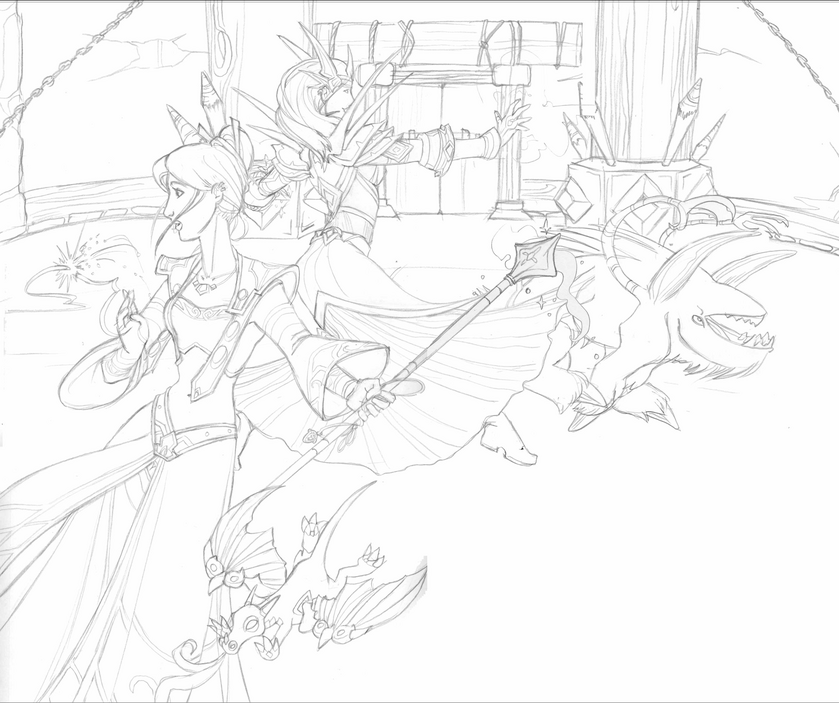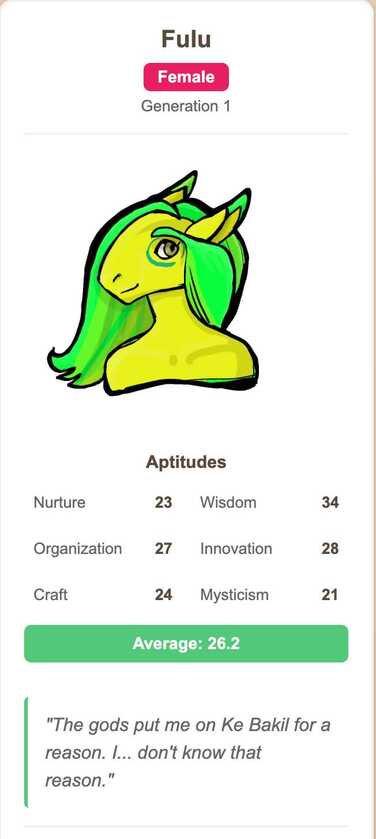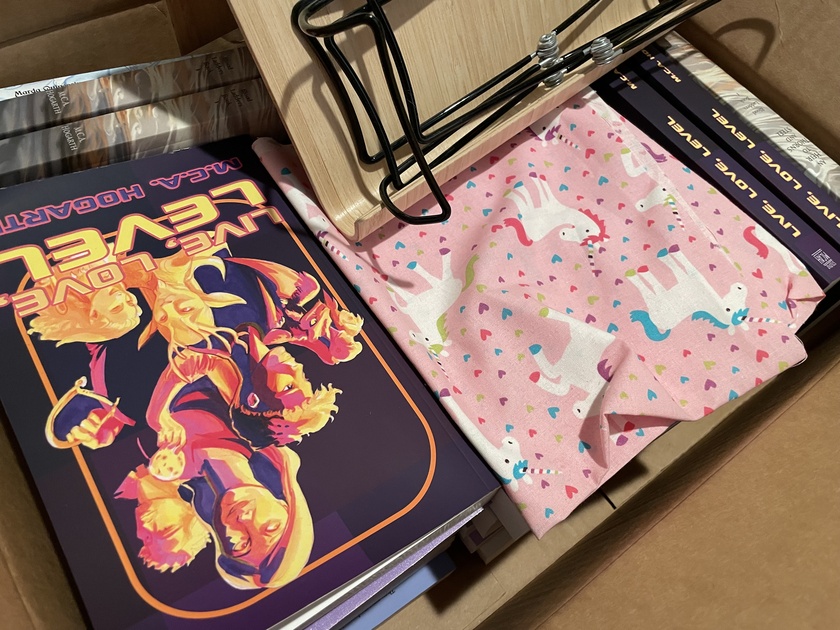“You didn’t tell me your grammer has a subjunctive mood!” I exclaim.
“I won’t take the blame for that,” Haraa says. “You knew we had the gnomic. How could we not have its opposite?” At my blank stare, she lifts her hands. Raising one, she says, “Either a thing is always so, or—” Raising the other, “it may or may not be so.”
“That’s… not exactly what I expected as an explanation.”
“Which is why you didn’t see it.” She looks unimpressed with my dismay. “Really, datyani, it’s only very recently you started digging into the grammar. And what did you discover? That it was complicated? That we do not follow the rules as perfectly as a textbook? What did that lead you to discover about your own language?”
This is a fair jab, because what it’s led me to discover about English is that half the time I can’t explain why we say the things we do. And I don’t mean the definition of vocabulary—that’s easy compared to things like figuring out how ‘let alone’ functions in sentences like ‘she won’t eat chicken, let alone anything fancier.’ A surprising number of language features simply aren’t explicable.
“So,” I say. “Tell me about this construction.”
“It’s the sound ‘ei’,” she says. “You have past, present, future, always true, and possibly true.”
I write that down. “It’s almost as if your language was affected by someone who was once an Observer.”
“Don’t get too clever, datyani.” When I look up, frowning, Haraa says, “When you go back in time it’s tempting to ascribe everything you see in modern Kherishdar to some neat precursor… and perhaps some things will be able to be explained that way.” She pauses, and adds, “You see, that would use the potential-tense.” Continuing, she says, “But not everything is so tidily put away. It is as much possible that the society capable of shaping a man who could create a star-spanning Gate was already the kind of society that made such distinctions, and He merely preserved them.”
“True,” I murmur. And cover my eyes. “What if I get it wrong!”
“Give it time,” she says. “You have other projects, yes? Tell this story and let it sit for a while. It deserves the time.”
I sigh. “Give me some words?”
“I shall help you make your primer,” she says. “So you need some basic words, yes? Like library, domisaludar, and market, hefshef.”
“And café,” I say, and pause. “How can you have cafes without coffee! Are they tea houses?"
"A tea house is a letrashi," she says. A little cozy place of tea. “But a café is a dinifaeri.”
I say, “A… a many-rice?”
“Yes. You get many kinds of rice dish at a café, so… dinifaeri.”
“And if I were to go to a café, I would use the potential tense, wouldn’t I?”
She grins at me. “Yes, you would. Unless you always go to a café to work on our language. Which you don’t, do you?”
“I would be so caffeinated.” I remember the size of the cups and the amount of milk in them. “I think.”
“Milk is dajz,” she says helpfully. “And one serving of milk, as in that cup you’re doodling, is a dajzi.”
“I honestly think this is three or four dajzi. What they serve is more like a coffee-flavored steamer than a cortado.” I pause. “Wait, did I do that right? If the singular form of milk refers to a serving of milk, how do you refer to multiple servings of milk?”
“With the numbers, of course,” she says. “You did it right. Three servings. Ta dajzi.” I don’t even want to think about this irregular, and am about to tell her so, but she’s rambling on. “But listen, you’ll like this. The word for cheese—”
“Is kurs,” I say. “I already know that one.”
“But kurs are hard cheeses! Soft cheeses are ror.”
I stare at her. “But they’re both cheese. Just at different stages of aging.”
“Right!”
“So… at what point does a rori become a kursi?”
“Oh, never,” Haraa says breezily. “They’re either one thing or the other.”
“No ishan for cheeses?”
“One might appreciate a cheese at every stage of consumption,” she says. “But the appreciation of a cheese past its expiration is not generally recommended.”
“Fine, fine,” I say, laughing. “So if you have hard and soft cheeses, you must have yogurt. What’s that? Ror-what?”
“Kurselfgen.”
“Why… why is the word for yogurt related to the word for hard cheeses and not soft?”
“Solely to aggrieve you, of course!” Haraa smiles and draws my hands away from the notebook, probably because I was thinking of clutching my head again. “Don’t worry, datyani. I give you permission.”
“To be aggrieved?”
“To get it wrong.”
I don’t know what to say to that, because her sincerity and her confidence are impossible to accept. So I blurt, “Do you have hairdressers?”
One of her ears sags. “The way a Noble or Regal’s servants might? Why on the earths would we need them, when we have family?”
“But… but what if you need it cut fancily, or done in some unusual sty—I… see this isn’t a thing with you people at all.”
“Family cuts your hair,” she says firmly. “Or if they can’t, your caste-peers help you. Any other odd questions?”
“If I were to think of one,” I say. “I would ask you.”
She tuts in a nearly perfect mimicry of Emma. “Now, datyani. That is a statement that should have been framed in the eternal tense, not the possible. You will always think of questions.”
“We have that in common,” I say, and am amused.
All right, so I am putting together sets of beginner sentences in Ai-Naidari for Reasons that may or may not pan out, and typical questions involve ‘do you want to go to [place]’ or ‘where is the [other place]’… so tell me what places you’d like to visit in Kherishdar!


















